Are you looking for a healthier alternative to rapeseed oil?
Rapeseed oil is a popular cooking oil in many parts of the world.
Fortunately, there are plenty of alternatives that can provide similar benefits.
In this article, I’ll share 10 of the best substitutes for rapeseed oil so that you can make informed decisions when it comes to your culinary creations.
Read Also: Why Is Canola Oil Banned in Europe?
What is Rapeseed Oil?

Rapeseed oil is a vegetable oil derived from the Brassica napus plant, which is a member of the cabbage family.
It has been cultivated in Europe for centuries and was initially used to produce industrial products such as lubricants, soaps, and even fuel.
These days, it’s more commonly used in cooking as an alternative to other types of vegetable oils.
Rapeseed oil has a light yellow hue with a slightly nutty flavor that works well with both savory dishes and desserts due to its subtle taste.
Unlike some other types of vegetable oils, rapeseed oil has no cholesterol or trans fats and contains high levels of monounsaturated fat – making it one of the healthiest cooking options out there.
When using rapeseed oil for cooking it’s best heated at lower temperatures than olive or canola oils because it has a much lower smoke point (the temperature at which the oil begins to break down).
The 10 Best Substitutes For Rapeseed Oil
Rapeseed oil is a delicious and healthy cooking oil, but it can be hard to find in some areas.
If you’re looking for an alternative, here are the 10 best substitutes for rapeseed oil:
1 – Olive Oil

Olive oil is a staple in many kitchens, thanks to its versatility and health benefits.
The oil is made from the fruit of the olive tree, and it comes in several varieties depending on how it’s processed.
Extra-virgin olive oil has a fruity taste with notes of grass, artichoke, and green apple – perfect for drizzling over salads or dipping bread into.
Light olive oil has a milder flavor and higher smoke point than extra-virgin, making it ideal for sautéing vegetables or roasting potatoes.
When substituting rapeseed oil with olive oil, use the same amount but keep an eye on the temperature as it can burn more easily than other oils.
2 – Avocado Oil
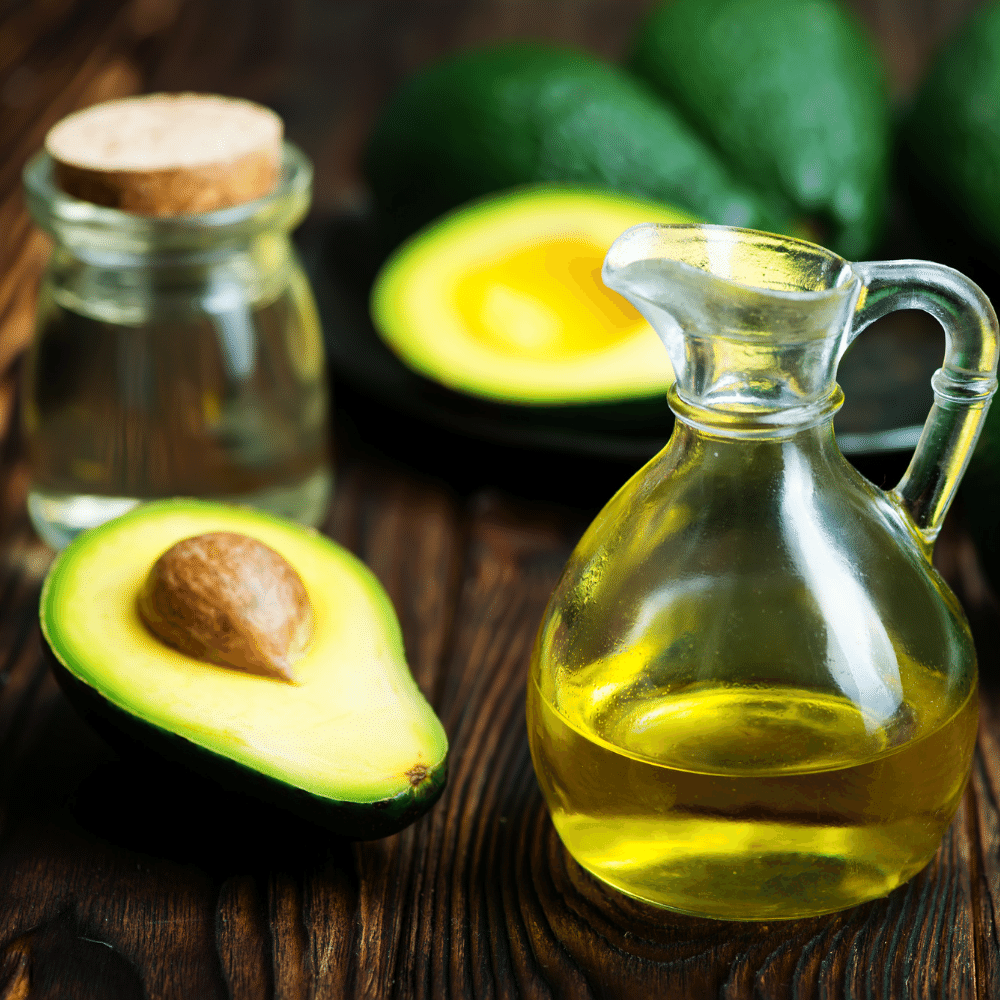
Avocado oil is a mild-tasting, monounsaturated fat that has become increasingly popular in recent years.
The oil is derived from the pulp of avocados and is known for its high smoke point, making it an ideal choice for cooking at high temperatures.
It also contains essential fatty acids like oleic acid which can help reduce inflammation and improve heart health.
When substituting avocado oil for rapeseed oil, you may need to adjust the amount used as avocado oil has a more intense flavor than rapeseed.
Avocado oil can be used in salads or drizzled over cooked dishes such as fish or vegetables.
It’s also great for baking and sautéing foods due to its neutral flavor profile and high smoke point.
3 – Pumpkin Seed Oil

Pumpkin seed oil is a unique cooking oil made from cold-pressed pumpkin seeds.
It has a deep green color and an earthy, nutty flavor that makes it perfect for salads or as a finishing oil.
The oil contains high levels of antioxidants, minerals, and vitamins that can help to boost the immune system.
When substituting pumpkin seed oil for rapeseed oil, it’s important to remember that it has a lower smoke point than rapeseed and therefore should not be used in high-heat applications such as frying.
However, its intense flavor makes it ideal for drizzling over dishes like roasted vegetables or salad dressings.
It also pairs well with other ingredients like garlic, onions, and herbs to create flavorful marinades or sauces.
4 – Safflower Oil
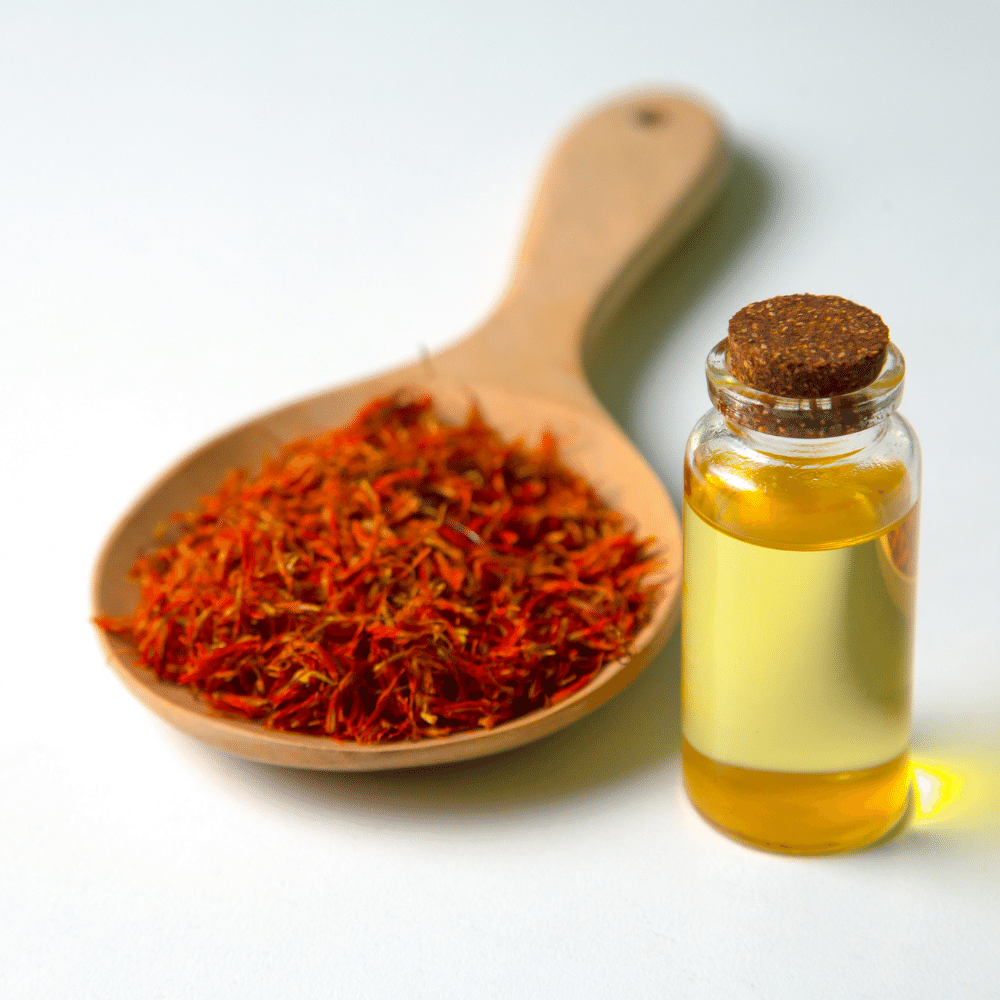
Safflower oil is a versatile cooking oil made from the seeds of the safflower plant. It has a high smoke point, meaning it can be used for both low and high-heat cooking.
It is also rich in monounsaturated fat, making it heart-healthy and great for baking.
Unlike rapeseed oil, which can have an overpowering flavor, safflower oil has a mild taste that won’t interfere with other ingredients.
The lightness of this oil makes it ideal for salad dressings and marinades, as well as stir-fries and roasting vegetables.
It’s also perfect for frying foods since it won’t impart any off flavors or aromas to your dishes.
For those looking to replace rapeseed oil in their recipes, safflower is an excellent alternative that will provide optimal results without compromising on flavor or health benefits.
5 – Sunflower Oil

Sunflower oil is a great alternative to rapeseed oil, as it has a mild flavor and light texture that won’t overpower your dishes.
It’s derived from sunflower seeds and is high in polyunsaturated fats, making it an excellent choice for cooking.
Sunflower oil has a higher smoke point than other oils, meaning it can withstand higher temperatures without burning or smoking.
This makes it ideal for frying, sautéing, and baking.
The neutral taste of sunflower oil also works well in salad dressings or marinades.
It’s also perfect for roasting vegetables or drizzling over popcorn.
Whether you’re looking to replace rapeseed oil in your recipes or just want to try something new, sunflower oil is an excellent option!
6 – Peanut Oil

Peanut oil is a popular cooking oil that has a mild, nutty flavor and a high smoke point.
It’s made from pressing roasted peanuts and is often used in Asian-style dishes like stir-fries and noodle soups.
Peanut oil can be used to replace rapeseed oil when sautéing vegetables or browning meats.
It also works great for deep frying as it won’t break down at higher temperatures, making it an ideal choice for tempura or French fries.
The neutral taste of peanut oil allows the flavors of other ingredients to shine through without overpowering them.
Plus, its light texture makes it easy to use in salad dressings or marinades where you don’t want an overly greasy finish.
7 – Coconut Oil
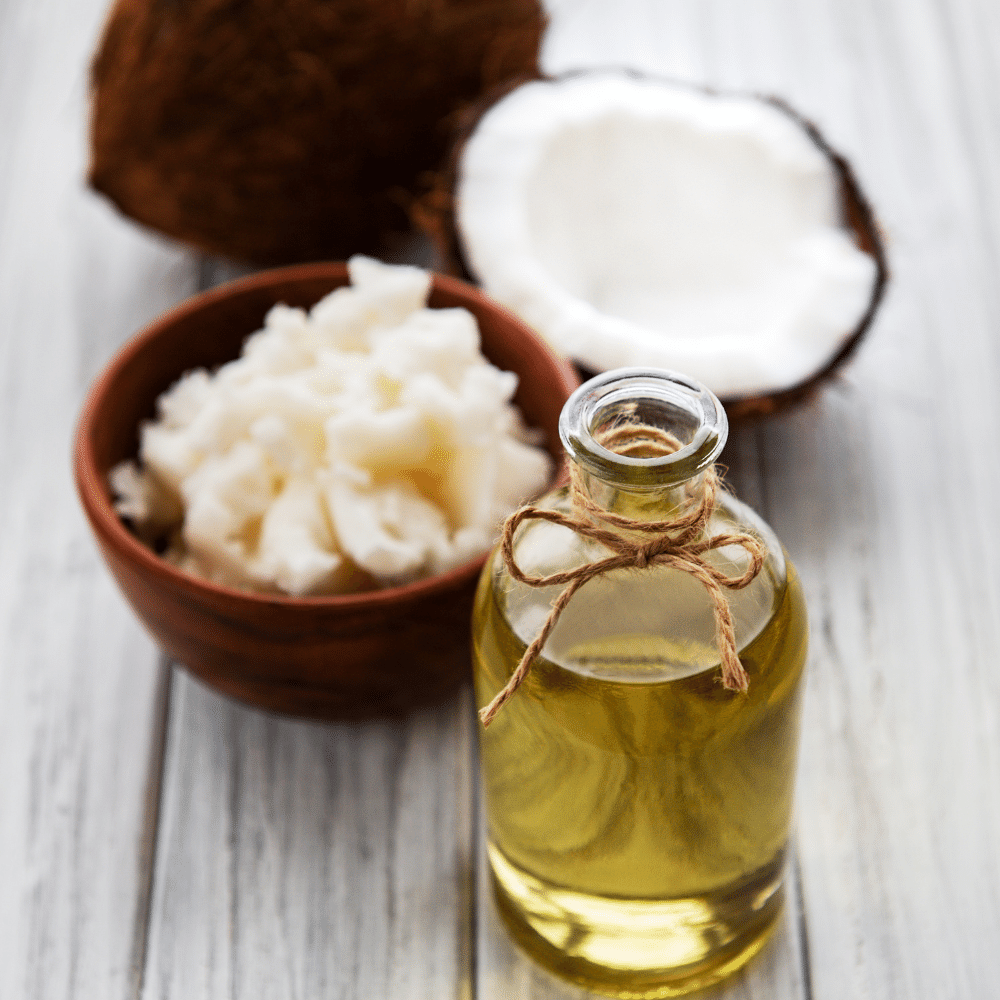
Coconut oil is a versatile ingredient that has become increasingly popular over the past few years.
It’s made from the meat of mature coconuts and is packed with healthy fats, vitamins, minerals, and antioxidants.
Coconut oil has a high smoke point which makes it ideal for cooking at higher temperatures without burning or smoking.
The flavor is mild and slightly sweet, making it perfect for baking or sautéing vegetables.
It can also be used as a replacement for rapeseed oil in dressings or sauces to add a subtle coconut flavor to your dishes.
Coconut oil has many health benefits such as boosting immunity and aiding digestion, so why not give it a try?
8 – Grape Seed Oil

Grape seed oil is a light and flavorful alternative to rapeseed oil.
It has a neutral flavor, making it ideal for cooking with high heat or for adding subtle flavor to dishes.
Grape seed oil is also packed with antioxidants and vitamins, including vitamin E and omega-6 fatty acids.
Unlike other oils, grape seed oil doesn’t have a strong aroma or taste so it won’t overpower the flavors of your food.
Its light texture makes it great for sautéing vegetables, baking cakes, and creating vinaigrettes.
When substituting grape seed oil for rapeseed oil in recipes, you may need to adjust the amount used as grapeseed has a higher smoke point than rapeseed.
9 – Walnut Oil
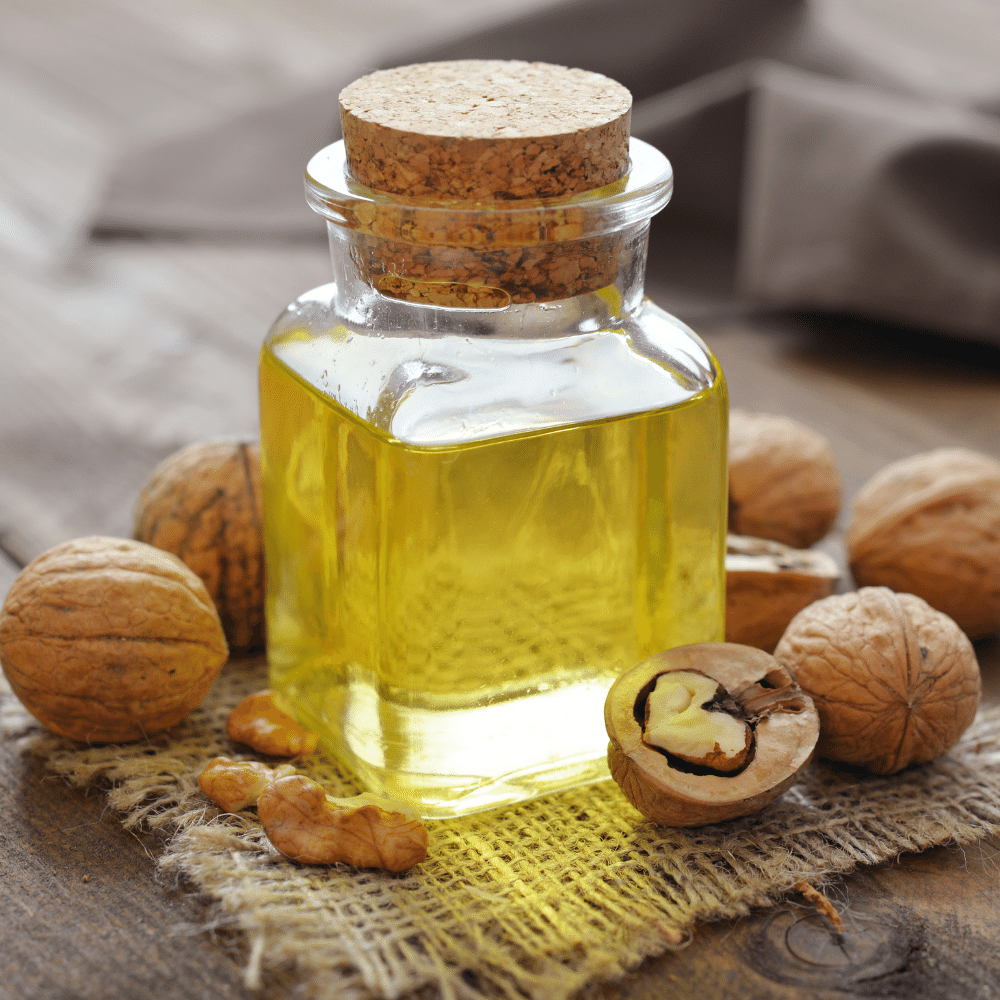
Walnut oil is a great alternative to rapeseed oil for those looking to add a nutty flavor and aroma to their dishes.
This light, golden-brown oil has a mild taste that pairs well with salads, vegetables, and fish.
It’s also an excellent choice for baking as it adds depth of flavor without overpowering the dish.
Walnut oil is rich in essential fatty acids like omega-3 and omega-6 which can help reduce inflammation in the body.
It’s also high in antioxidants which can help protect against cell damage caused by free radicals.
When substituting walnut oil for rapeseed oil, be sure to use it sparingly as its intense flavor can easily overwhelm other ingredients.
10 – Flaxseed Oil
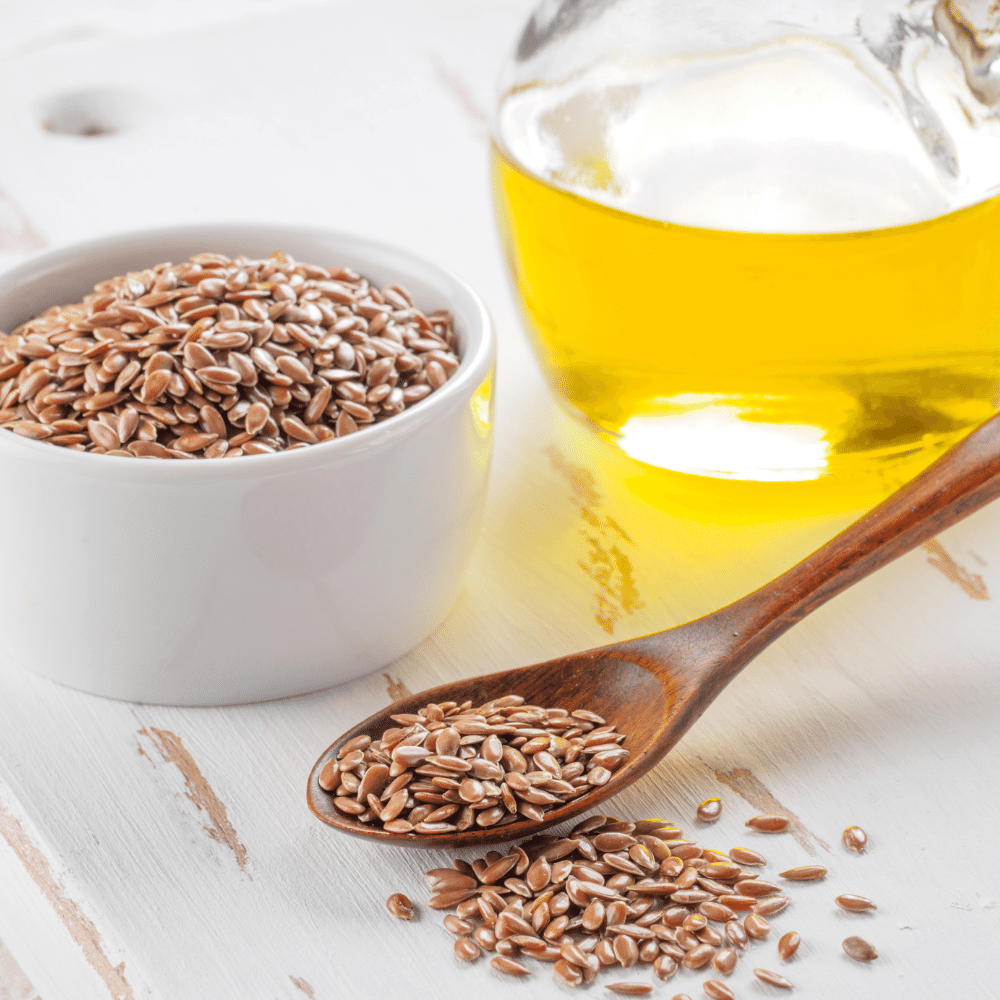
Flaxseed oil is a great alternative to rapeseed oil, as it has many of the same benefits.
It is rich in omega-3 fatty acids and contains lignans, which are compounds that may offer anti-inflammatory properties.
Flaxseed oil has a nutty flavor and can be used for both cooking and baking. It works well when added to salads or smoothies, but should not be heated due to its low smoke point.
The oil also offers numerous health benefits, such as improved heart health and better digestion.
When substituting flaxseed oil for rapeseed oil, make sure to use half the amount since it is much more potent than other oils.
This way you can still enjoy all the benefits without any overpowering flavors!
Conclusion
In conclusion, there are plenty of alternatives to rapeseed oil that can provide similar benefits.
These include olive oil, avocado oil, pumpkin seed oil, safflower oil, sunflower oil, peanut oil, coconut oil, grape seed oil, walnut oil, and flaxseed oil.
Each of these substitutes has its own unique flavor and nutritional benefits, allowing you to choose the best option for your culinary needs.

The 10 Best Substitutes For Rapeseed Oil
Ingredients
- Olive Oil
- Avocado Oil
- Pumpkin Seed Oil
- Safflower Oil
- Sunflower Oil
- Peanut Oil
- Coconut Oil
- Grape Seed Oil
- Walnut Oil
- Flaxseed Oil
Instructions
- Pick your favorite substitute from the list above.
- Follow cooking directions for your selected substitute with the proper ratio of ingredients.
Hi, I'm Benjamin. I love cooking, long walks, and my girlfriend! Here you’ll find simple and delicious recipes that you can make in 30 minutes or less.

